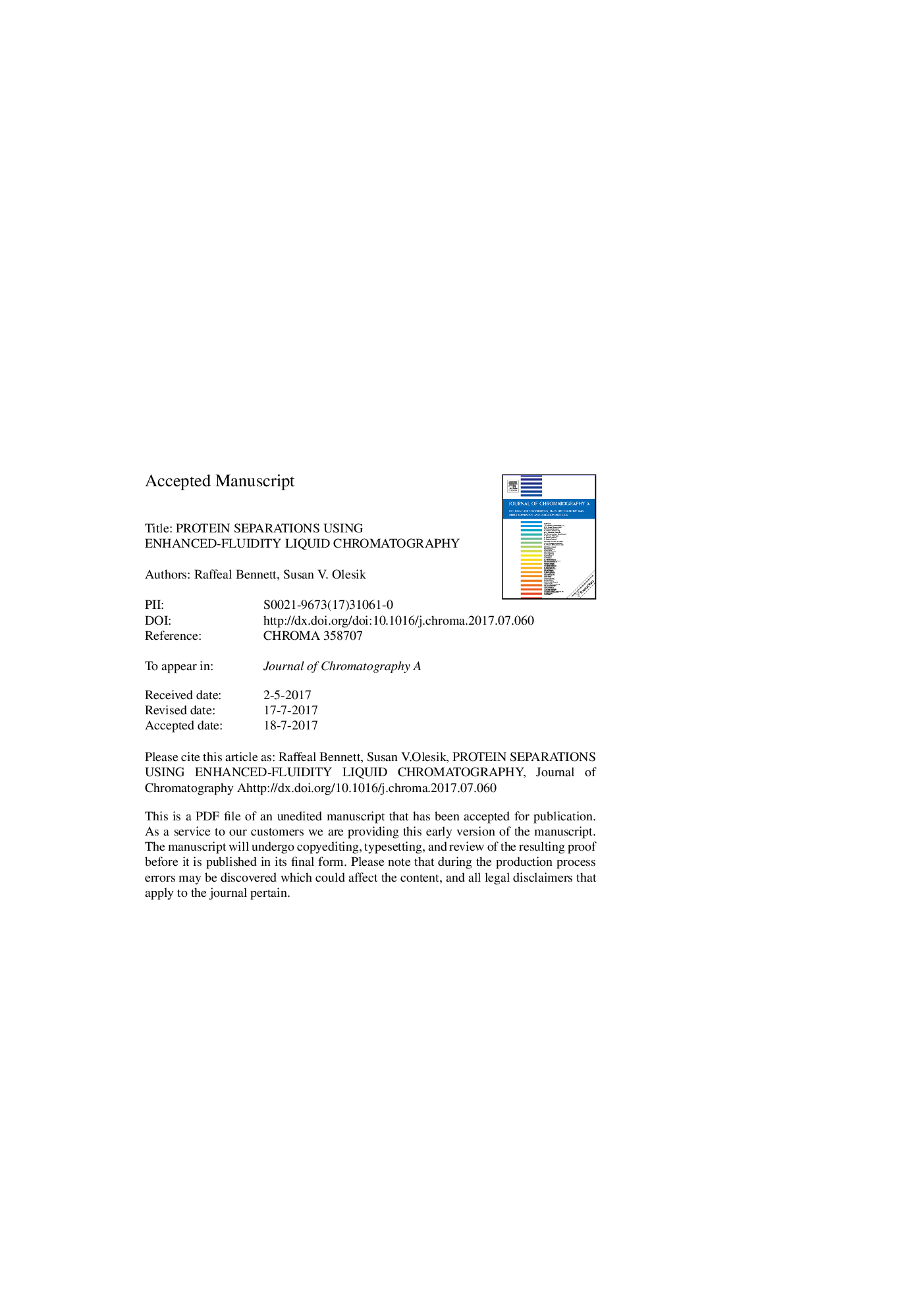| Article ID | Journal | Published Year | Pages | File Type |
|---|---|---|---|---|
| 7609858 | Journal of Chromatography A | 2017 | 34 Pages |
Abstract
Enhanced-fluidity liquid chromatography (EFLC) methods using methanol/H2O/CO2 and hydrophilic interaction liquid chromatography (HILIC) were explored for the separation of proteins and peptides. EFLC is a separation mode that uses a mobile phase made of conventional solvents combined with liquid carbon dioxide (CO2) in subcritical conditions. The addition of liquid CO2 enhances diffusivity and decreases viscosity while maintaining mixture polarity, which typically results in reduced time of analysis. TFA additive and elevated temperature were leveraged as key factors in the separation of a 13-analyte intact protein mixture in under 5Â min. Under these conditions EFLC showed modest improvement in terms of peak asymmetry and analysis time over the competing ACN/H2O separation. Protein analytes detected by electrospray ionization - quadrupole time of flight, were shown to be unaffected by the addition of CO2 in the mobile phase. Herein, the feasibility of separating hydrophilic proteins up to 80Â kDa (with transferrin) is demonstrated for CO2-containing mobile phases.
Related Topics
Physical Sciences and Engineering
Chemistry
Analytical Chemistry
Authors
Raffeal Bennett, Susan V. Olesik,
